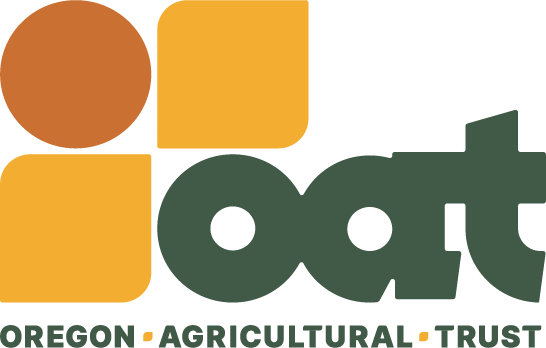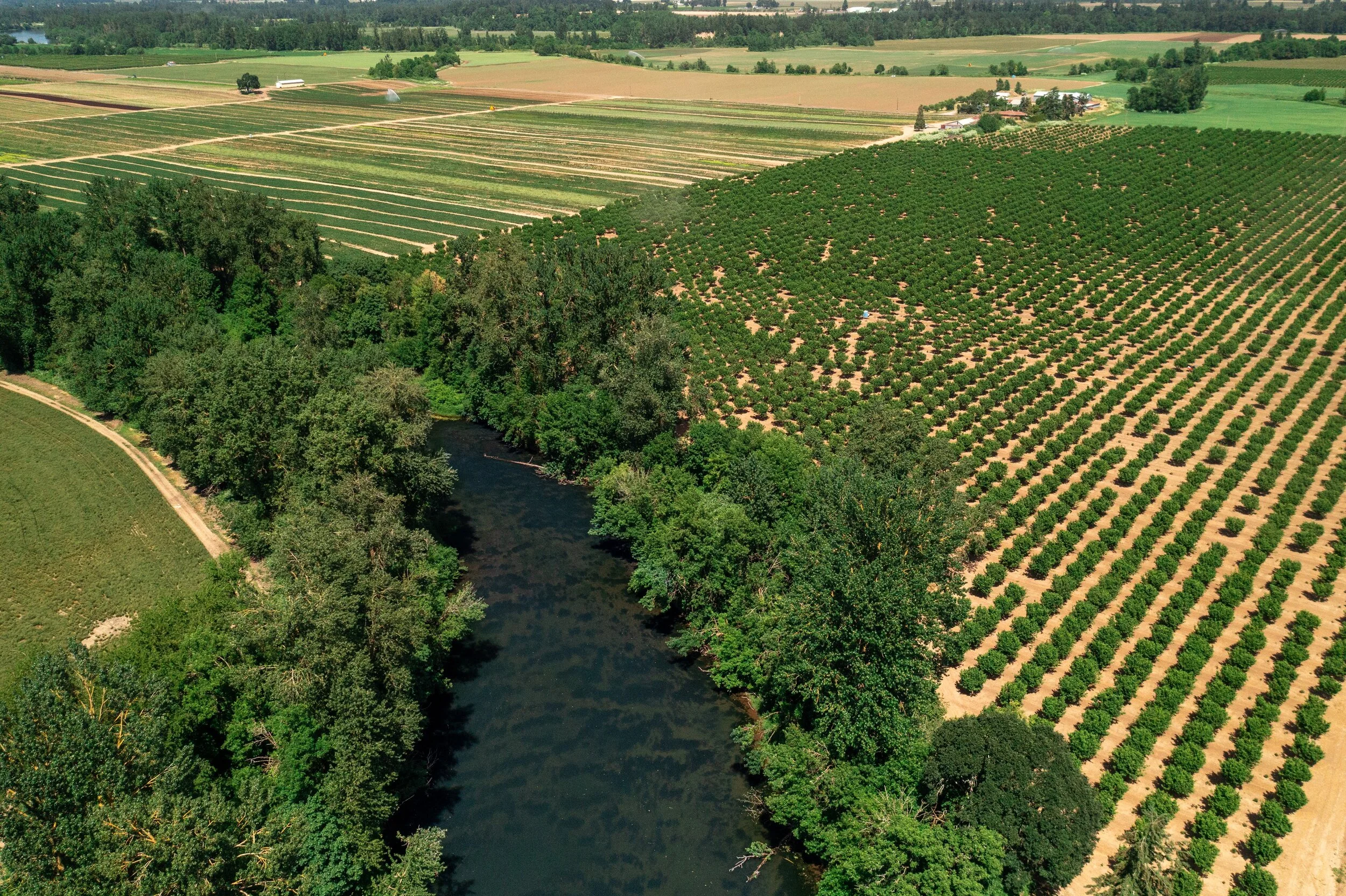A Conversation with Board of Agriculture Member Chad Allen on Agriculture and Public Service
Tillamook County dairy farmer Chad Allen has a lot on his plate. In addition to running a 500-head dairy operation and raising 5 children, Chad dedicates himself to public service. He serves on the Oregon Agricultural Heritage Commission - the commission that oversees Oregon’s working land easement grant program - as well as the boards of the Oregon Dairy Farmers Association, Tillamook County Creamery Association, and the Oregon Board of Agriculture, which oversees and advises the Oregon Department of Agriculture. Over the past decade, Chad has also developed and advocated for public policies related to agriculture.
We’re grateful that Chad took the time to chat with OAT Communications Administrator Cynthia Lopez about his advocacy work earlier this summer. Here’s a snapshot of their conversation.
CL - I'm curious how you originally got involved in advocacy work?
Chad Allen with his father, George Victor Allen
CA – I opened my mouth. You know, we’ve got a wonderful local farm bureau here in Tillamook. We have such great programs in ag that create the opportunity to challenge yourself in public speaking and thinking outside the box. [From] 4-H clubs, to FFA, to college - being part of the dairy club.
My father was a phenomenal mentor. It was really hammered into me that we live by example. And he's always participated at the Tillamook Creamery board and been chairman in the past and farm bureau and all that kind of stuff. And so you’ve got to be involved and share your passion. It’s that passion for the industry.
And as more and more people become removed from having a relationship with some farmer in their family, the more work we have to do to educate people on the reality of the issues that are confronting animal production. So that's kind of where it starts for me.
CL - What do you feel is the most important issue for farmers and ranchers currently?
CA – Water. We don't think of water as a huge issue here in Tillamook necessarily all the time, but if you don't have water rights here, your growing season will be pretty short. Where it impacts us everywhere else is our feed costs. What's going on in Klamath Falls is going to hurt us just like it's going to hurt them. The cost of alfalfa is going to, without a doubt, be more money this year. Dairy cows eat thousands and thousands and thousands of tons of alfalfa. And you couple that with cap and trade conversations and carbon reductions and credits and all that kind of stuff. It takes energy to make food. It’s that metaphor, dying from 1,000 cuts. It's just another one and another one. You add it on to what happened last year, and this year - it just keeps going. And pretty soon you’ve got to have some reality set in, regardless of how hard you work, and how much passion you have, you’re going broke. And so I'd say water.
CL - If someone was interested in becoming more involved in advocating for farmers with the legislature, what would be important for them to know?
CA - I'd say probably that we're all on the same side, most of the time, in almost all the issues at the Capital. Sometimes our emotions get involved and we lose sight of what we're trying to accomplish. It seems like we often are at the Capitol trying to fight for the right to farm. And what everybody needs to understand is that farmers are dependent on consumers to eat their products, and consumers are dependent on farmers to feel confident that we're doing things right. And so if we keep that in perspective, then I think we can advocate well.
CL - What do you hope to learn or accomplish on the Board of Agriculture?
CA - I was certainly excited to get the appointment. I felt that I could bring something and put my time in and my hope is that things are going to be better because I was there.
[Oregon Department of Agriculture Director] Alexis Taylor and all her great staff have been able to advise for good policymaking, trying to make sure that we can work on bridging that gap between consumer and farmer, and bring down some of the divisiveness.
Allen’s five children
It’s a myth, this competition between environment and agriculture and how one is bad for the other and one is suffering because of that. I don't believe that for a second. As we talk about all sorts of issues, water quality, and water itself, we’ve all got the same goals. We shouldn't have water policies that are negatively impacting the success of small farmers. There's a whole bunch of things that happen when you get half truths and half science and then try to make decisions out of it. A lot of these things take a long time to find out if they benefit, or if they cause more problems. I just hope to bring an open mind to some of these issues.




